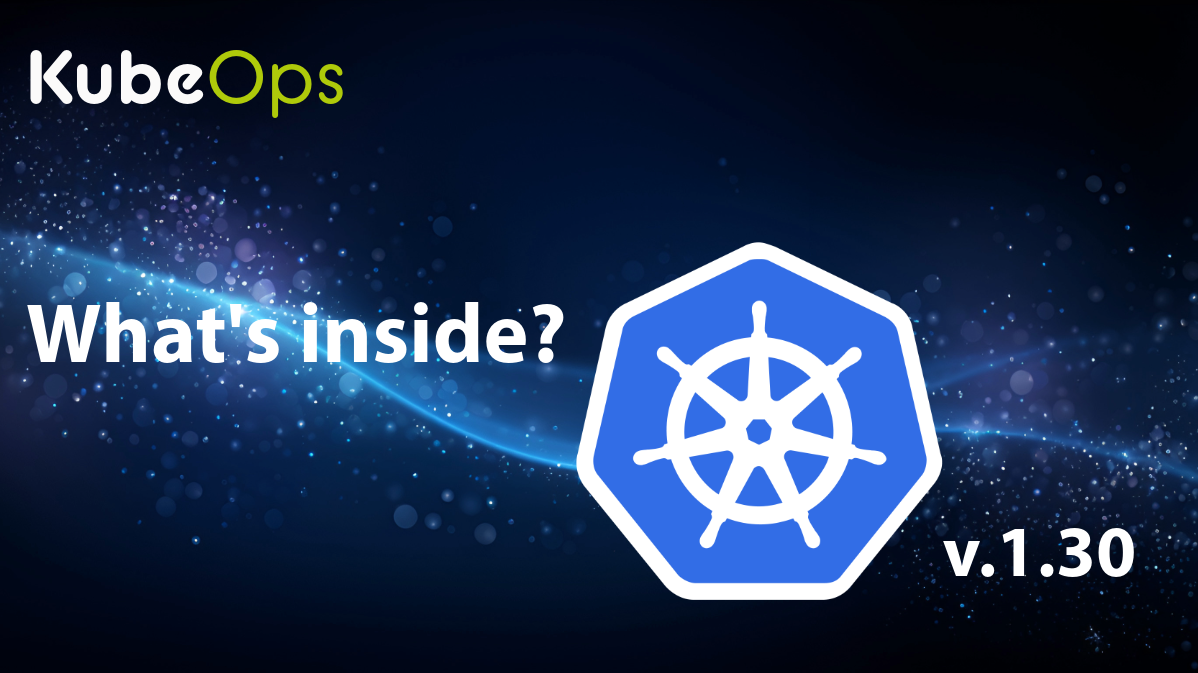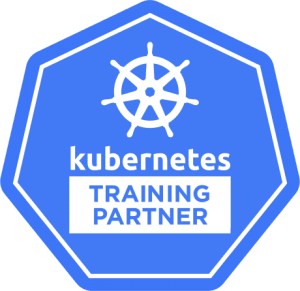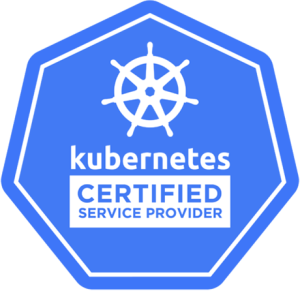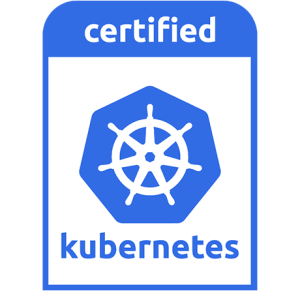Blogs

Introduction
The release of Kubernetes 1.30 marks a significant step forward in the platform's evolution, introducing a series of enhancements that bolster security, streamline developer operations, and expand the capabilities of this widely-used orchestration tool.
As organizations continue to adopt Kubernetes at a rapid pace, the focus on refining and securing its environment becomes increasingly important. This release addresses these needs with advanced security measures and developer-friendly features designed to facilitate more efficient and secure application deployment and management.
Enhanced Security Measures
- CEL Expression Filters for Webhooks (KEP #3716):
Kubernetes 1.30 introduces CEL expression filters for webhooks, now a stable feature that allows for more precise scoping of webhook triggers. This enhancement lets administrators define complex rules to exclude specific resources, improving the granularity of security policies and reducing unnecessary load on services. For example, webhooks can be configured to ignore lease resources, preventing them from being triggered inappropriately, thereby enhancing both performance and security.
- Data Security with Controlled Volume Restore (KEP #3141):
A key security enhancement in Kubernetes 1.30 is the prevention of unauthorized volume mode conversions during the restoration of volumes from snapshots. The update requires explicit authorization for such conversions, safeguarding against unauthorized data modification. This feature plays a crucial role in environments where data integrity and compliance are paramount, ensuring that only permitted operations can alter the state of data storage.
- Optimized SELinux Label Handling for Faster Container Startups (KEP #1710):
Improvements in SELinux label handling have been introduced to speed up the container startup process. Kubernetes 1.30 optimizes how SELinux labels are applied, moving away from recursive changes across all files in a volume to setting the correct label at mount time. This reduces overhead and accelerates startup, crucial for operations requiring rapid scaling.
- Enhanced Pod Isolation with User Namespaces (KEP #127):
User namespaces are now supported in pods, marking a significant advancement in Kubernetes' security capabilities. This feature allows for better isolation by remapping UID and GID values inside a pod to different values on the host, which helps prevent privilege escalation attacks and ensures that each pod operates within its secure boundary.
- Advanced Authorization Controls with Structured Configuration (KEP #3221):
Kubernetes 1.30 enhances its security framework with the introduction of structured authorization configurations. This feature allows for more detailed and flexible security policies, supporting the use of multiple authorization webhooks. It enables administrators to create tailored security policies that are finely tuned to the specific needs of their deployments, further enhancing the security posture of Kubernetes environments.
Developer Enhancements
- Go Workspaces (KEP #4402):
The adoption of Go workspaces in Kubernetes 1.30 is a major milestone that simplifies the development process by facilitating better management of multiple Go modules. This approach enables developers to work more effectively with large codebases, reducing build times and improving code organization. This stable enhancement is a testament to the community's commitment to enhancing the developer experience within the Kubernetes ecosystem.
- PreStop Hook Enhancements (KEP #3960):
Kubernetes now offers an enhanced preStop hook, introducing a sleep action that allows developers to delay the shutdown of a pod. This provides more control over the termination process, ensuring that applications can complete essential cleanup operations before the pod is fully terminated. This feature is crucial in high-availability environments where graceful shutdowns can prevent data loss and ensure service continuity.
- Container Resource-Based Pod Autoscaling (KEP #1610):
The new container resource-based pod autoscaling feature in Kubernetes 1.30 allows for dynamic and efficient scaling of applications by monitoring the resource usage of individual containers within a pod. This method provides a more granular control over scaling behaviors, making it possible to fine-tune resource allocation and application performance based on actual usage rather than broader pod-level metrics.
- Dynamic Resource Allocation (DRA) with Structured Parameters (KEP #4381):
Kubernetes 1.30 introduces structured parameters for dynamic resource allocation (DRA), enhancing the flexibility and transparency of resource management. This alpha feature allows developers to specify detailed requirements for resource claims, improving the scheduling and allocation of resources across clusters. It ensures that applications receive the resources they need while maintaining efficiency and reducing waste.
These developer-focused improvements in Kubernetes 1.30 not only enhance the platform’s usability and efficiency but also reflect the Kubernetes community's ongoing efforts to adapt to the evolving needs of developers and operators in a cloud-native landscape.
Conclusion
The release of Kubernetes 1.30 underscores the community’s dedication to advancing the platform’s robustness, security, and usability. Each enhancement and new feature reflects a focused effort to address the evolving challenges faced by developers and system administrators in a dynamic technological landscape. From significant security enhancements like CEL expression filters and advanced authorization controls, to developer-focused improvements such as Go workspaces and dynamic resource allocation, Kubernetes 1.30 is designed to streamline workflows and bolster security across the board.
As Kubernetes continues to be a critical component in the cloud-native ecosystem, the enhancements introduced in version 1.30 will undoubtedly assist organizations in achieving greater operational efficiency and security. This release not only enhances the platform's core functionalities but also reinforces Kubernetes' position as a leader in container orchestration, ready to support the next generation of cloud-native development. Moving forward, the community's commitment to continuous improvement promises further innovations that will keep Kubernetes at the forefront of technology advancements.
These collective efforts ensure that Kubernetes remains an essential tool for developers and enterprises alike, fostering an environment that is both powerful and secure. As we look to future releases, the Kubernetes community is well-positioned to continue its trajectory of providing high-value features that meet and exceed the complex demands of modern infrastructure
Check out our latest blogpost
Capacity management: Optimized IT performance through strategic resource management
Any Questions?
Please feel free to contact us for any question that is not answered yet.
We are looking forward to get in contact with you!
KubeOps GmbH
Hinter Stöck 17
72406 Bisingen
Germany
-
Telefon:
+49 7433 93724 90
-
Mail:
This email address is being protected from spambots. You need JavaScript enabled to view it.





